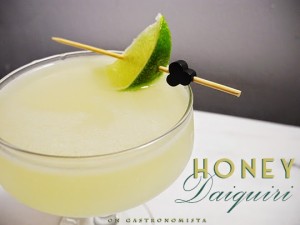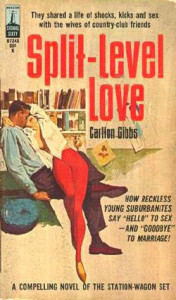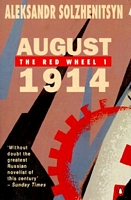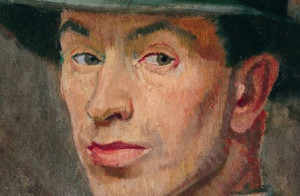Weekend: cocktails, World War I, Alexandr Solzhenitsyn and Marvin Gaye
Reading Time: 6 minutes.
For this weekend: cocktails, World War I, Alexandr Solzhenitsyn and Marvin Gaye.
From Saveur, warm-weather whiskey cocktails. Some of the drinks sound good. All of the photos are cool:

From the folks at Garden & Gun magazine, Ten New Southern Beers and a bourbon root beer float not far down the road from us:
Rob McDaniel met Will Abner for the first time in a field in southwestern Virginia. They were both at Lambstock, shepherd Craig Rogers’s bacchanalian annual gathering of farmers, chefs, bartenders, and other food-and-beverage types. “I was finding wood sorrel and wild shiso in the fields up there. Will just started making cocktails with it. I thought, ‘That’s pretty cool,'” says McDaniel, who runs the kitchen at SpringHouse in Alexander City, Alabama. “When I went back to the restaurant, I said to our front-of-house manager, ‘We’ve really got to talk to this guy.’ He was just slinging drinks then, you know, at some bar that closed at three a.m.”
From our friends at Gastronomista, an article on honey solera aged daiquiris, plus more cool photos:

From The Guardian in London, a piece on the science of mixing mind-blowing cocktails:
Likewise for Thomas Aske, one of the pair behind the Worship Street Whistling Shop in Shoreditch, east London, who regularly lectures on multi-sensory drinks, a cocktail always starts with a story. “It could be derived from anything but often it’s the brand of spirit you’re using,” he says. For instance, a barrel-aged cocktail based around Clynelish highland whisky was cooled with a frozen pebble from the coast of Scotland. “It could add a bit of minerality,” says Aske (unsure whether that effect would be physiological or purely psychological), “but it also can hold its temperature without offering the dilution that ice does, so you’ve still got the intensity of flavour.”

I prefer my cocktails without frozen stones, an impulse that may have inspired this rant about when the martini went off the rails:
Step into a trendy restaurant and look at the liquor menu. A whole section will be devoted to martinis of every hue and taste – strawberry, watermelon, jalapeno and (for all I know) bubblegum. These alleged martinis are the equivalent of the drinks you used to get in Jamaica or at Harry’s Glass Bar: crowned with paper umbrellas, stuffed with sliced of tropical fruit or celery or cucumber, they declared themselves sui generis, though no one could say of what genre they were “sui.” These are drinks for people who do not like the taste of drinks, martinis for martini haters.
Walker Percy is one of the great post-war 20th century American novelists. He also drank bourbon until his doctor forbade it. In an essay from Signposts In A Strange Land,Percy notes (in Bourbon):
Not only should connoisseurs of bourbon not read this article, neither should persons preoccupied with the perils of alcoholism, cirrhosis, esophageal hemorrhage, cancer of the palate, and so forth—all real enough dangers. I, too, deplore these afflictions. But, as between these evils and the aesthetic of bourbon drinking, that is, the use of bourbon to warm the heart, to reduce the anomie of the late twentieth century, to cure the cold phlegm of Wednesday afternoons, I choose the aesthetic. What, after all, is the use of not having cancer, cirrhosis, and such, if a man comes home from work every day at five-thirty to the exurbs of Montclair or Memphis and there is the grass growing and the little family looking not quite at him but just past the side of his head, and there’s Cronkite on the tube and the smell of pot roast in the living room, and inside the house and outside in the pretty exurb has settled the noxious particles and the sadness of the old dying Western world, and him thinking: “Jesus, is this it? Listening to Cronkite and the grass growing?”
A superb question, here in late middle-age.

We are a little late to the commemorative party, but World War I started one hundred years ago this month.
First, from your schooldays, John McCrae’s “In Flanders Fields”:

As a young man, I was much taken with Russian dissident Alexandr Solzhenitsyn, not least his novel August 1914. Here is the New York Times book review from 1972:
Barred by the government from doing research in archives and libraries, expelled from the Writers’ Union, deprived of all income from abroad, constantly harassed by the authorities, repeatedly vilified and slandered in the Soviet press and at party indoctrination meetings (which try to discredit him with his countrymen by spreading rumors that he is a nobleman, a Jew and a German agent), Solzhenitsyn continues writing under conditions that would drive most of us to madness or suicide. Very few living writers can match his artistic achievement; in human and moral stature he is in a class by himself on the literary landscape of our age.
Western society has given itself the organization best suited to its purposes based, I would say, one the letter of the law. The limits of human rights and righteousness are determined by a system of laws; such limits are very broad. People in the West have acquired considerable skill in interpreting and manipulating law. Any conflict is solved according to the letter of the law and this is considered to be the supreme solution. If one is right from a legal point of view, nothing more is required. Nobody will mention that one could still not be entirely right, and urge self-restraint, a willingness to renounce such legal rights, sacrifice and selfless risk. It would sound simply absurd. One almost never sees voluntary self-restraint. Everybody operates at the extreme limit of those legal frames.
I have spent all my life under a Communist regime and I will tell you that a society without any objective legal scale is a terrible one indeed. But a society with no other scale than the legal one is not quite worthy of man either. A society which is based on the letter of the law and never reaches any higher is taking very scarce advantage of the high level of human possibilities. The letter of the law is too cold and formal to have a beneficial influence on society. Whenever the tissue of life is woven of legalistic relations, there is an atmosphere of moral mediocrity, paralyzing man’s noblest impulses. And it will be simply impossible to stand through the trials of this threatening century with only the support of a legalistic structure.
In today’s Western society the inequality has been revealed [in] freedom for good deeds and freedom for evil deeds. A statesman who wants to achieve something important and highly constructive for his country has to move cautiously and even timidly. There are thousands of hasty and irresponsible critics around him; parliament and the press keep rebuffing him. As he moves ahead, he has to prove that each single step of his is well-founded and absolutely flawless. Actually, an outstanding and particularly gifted person who has unusual and unexpected initiatives in mind hardly gets a chance to assert himself. From the very beginning, dozens of traps will be set out for him. Thus, mediocrity triumphs with the excuse of restrictions imposed by democracy.
Finally, just because we can, here’s Marvin Gaye and “Ain’t That Peculiar”:
